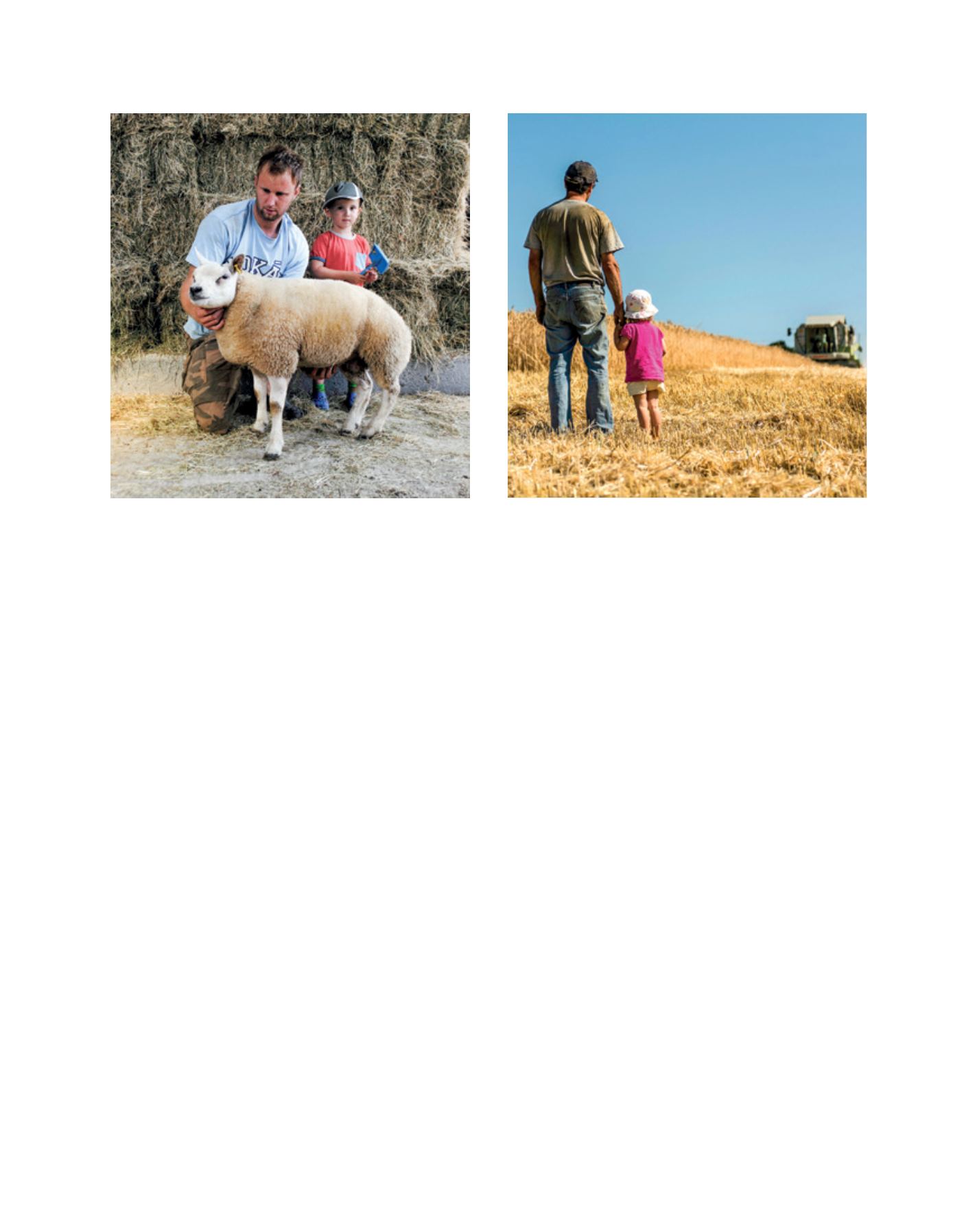

[
] 183
vital for spouses and should be regulated at European level.
As such, this status will confer production rights to women
farmers who will be entitled to participate fully in decisions
applying to their family farms, with the same rights as the
head of the farm.
Member states must also provide the same advantages to
assisting spouses as to the head of the farm, in terms of social
security and retirement benefits. Amendments to social bene-
fits, contributions and taxation may be needed. There should
also be participation by women farmers in all decision-making
bodies which affect them, with the possibility of establishing
a gender quota system.
Furthermore, social equality must be ensured: farmers, both
men and women, should have the right to a similar standard
of living as those working in other sectors, as regards their
income, working hours, living conditions and so on.
In addition, women’s unions and women’s rights move-
ments must be given support so they are able to complete
their projects properly, such as creating women’s rights
movements within agricultural unions in countries where
they do not currently exist and strengthening those that
do. This would all ensure that the rights of women farmers
are indeed defended.
The different roles of women within farms should also be
recognized in order to acknowledge the value of the varying
tasks they carry out along the production chain, which,
although bringing value, are never quantified.
To ensure generation renewal in the future, family farms
– in all their forms – must be economically viable and prof-
itable. Copa-Cogeca therefore calls on heads of state and
governments to ensure that family farms are prioritized in
their agendas, that key tools are provided and barriers to trade
tackled. In particular, they must ensure that:
• access to land and natural resources is provided for family
farms
• investment in the sector is stepped up and research and
innovation are boosted with knowledge transferred to
farmers to encourage the uptake of innovative solutions
• conditions are established to help producer organizations
like agri-cooperatives set up so that farmers can join
forces to market their produce, add value to produce to
get a higher return and better manage extreme market
volatility
• farmers are given proper training and education
• the contribution of women to family farms is recognized
across the world
• young farmers are given support as they face difficulties
when getting started
• unfair and abusive practices in the food chain are
addressed so that farmers have a better chance to get an
income from the market
• non-tariff barriers to trade are tackled and support to find
new market outlets and export promotion boosted
• family farms have access to internet and other
infrastructures, in line with the rest of society.
Concluding, Pesonen said: “With family farmers’ income half
the average level in Europe, it is vital for family farmers to earn a
decent income from the farm and for policies to be connected to
the economic production role of farms in providing good quality
food supplies for millions of consumers. Too often policies are
devised by people who are remote from farms.
“I hope that 2014 was not seen as a way just to celebrate the
International Year of Family Farming, but to really change some
policies in order to improve their situation. And we need to make
sure that this process continues into 2015 and well beyond that.”
To ensure generation renewal in the future, family farms of all types must be
economically viable and profitable
Copa-Cogeca calls on heads of state and governments to ensure that family
farms are prioritized in their agendas
Image: Copa-Cogeca
Image: Copa-Cogeca (Winning photo from Copa-Cogeca Photo Competition on Family farms and Agri-Cooperatives)
D
eep
R
oots
















